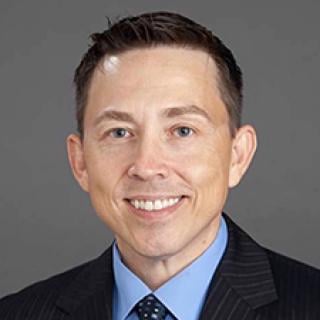As a medical student, do you ever wonder what it’s like to specialize in urology? Meet Ryan Terlecki, MD, a urologist and a featured physician in the AMA’s “Shadow Me” Specialty Series, which offers advice directly from physicians about life in their specialties. Check out his insights to help determine whether a career in urology might be a good fit for you.
“Shadowing” Dr. Terlecki
Specialty: Urology.
Practice setting: University-based academic group.
Employment type: Hospital.
Years in practice: 10.
A typical day and week in my practice: Monday: I have a full day in the operating room. I get to the hospital at 7 a.m., and typically leave around 5 p.m. I work with my fellow, the residents, and medical students. In between cases, I’ll handle any necessary documentation, emails, etc.
Tuesday and Thursday: I have clinic that begins at 8 a.m. We take lunch from noon to 1 p.m. The last clinic patient is usually scheduled for 4:15 p.m. I typically see 25–40 patients depending on the day. All documentation is usually done by the time we leave at 5 p.m.
Wednesday: Grand Rounds takes place from 6:30–8:30 a.m. After this, I go to the operating room and perform surgery until around 5 p.m.
Friday: This is another full day in clinic, but the first half involves primarily procedures (e.g., vasectomies, cystoscopies, prostate biopsies).
My weekends and evenings are mostly spent with my family.
The most challenging and rewarding aspects of urology: The most challenging aspect of caring for patients in urology is the high demand with the limited number of physicians, as urology has an overall shortage. The most rewarding aspect is that we have the ability to form strong connections with patients, given how profoundly some of the intimate health issues we address can impact quality of life.
Three adjectives to describe the typical urologist: Insightful, methodical, and witty.
How my lifestyle matches, or differs from, what I had envisioned: My lifestyle mirrors what I hoped for in the latter part of medical school. I imagined having a thriving practice that allows me to enjoy going to work, but to also enjoy my downtime with family. In my view, achieving balance and avoiding burnout is less about the specialty one chooses and more about the mindset of the individual physician.
Skills every physician in training should have for urology but won’t be tested for on the board exam: The chief skills to be successful involve communication. Learning how to communicate effectively and efficiently with patients, patient families, support staff, and other physicians is critical to a successful practice, but poorly addressed at most training institutions.
One question physicians in training should ask themselves before pursuing urology: Do I feel comfortable working with my hands and discussing intimate health issues with patients?
Books every medical student interested in urology should be reading: The three books for medical students would be:
- Netter’s Atlas of Human Anatomy.
- Weider’s Pocket Guide to Urology.
- Hinman’s Atlas of Urologic Surgery.
The online resource students interested in urology should follow: The best online resource is the American Urological Association’s medical student curriculum.
Quick insights I would give students who are considering urology: It is important to recognize that urology is highly competitive and involves an early match. Strong test scores and peer-reviewed publications are important for being considered at most training programs.
Mantra or song to describe life in urology: On an international surgical trip to Barranquilla, Colombia, I learned the phrase “cogela suave,” which roughly translates to “take it easy.” It was a way of life for the people of that city and I apply it almost daily. If I were to use another one from my own repertoire, it would be “work hard, play hard.”
More about choosing a specialty
The AMA provides a guide, “Choosing a Specialty: An AMA Resource for Medical Students” (PDF, AMA members only) that presents a clear, approachable overview of specialties and subspecialties and can assist you in choosing a career path.




